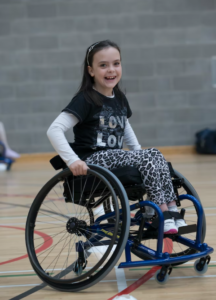When someone requires assistance with everyday activities and duties, a caregiver looks out for their health and well-being. Injuries, problems with mobility or memory, diseases, or chronic conditions that make doing daily tasks more difficult may necessitate providing a caretaker for your elderly loved one. While the jobs one performs as a caregiver for an elderly parent or senior loved one may change from day to day, certain fundamental ones do not. The following are the main duties of a caregiver:
-
Travel & transport to appointments:
Our ability to move becomes increasingly constrained as we become older. Getting in and out of a wheelchair, using a walker, or entering and exiting a car or shower are all activities that some people may require assistance with. Making ensuring their loved one can move securely and without suffering any harm or discomfort is the caregiver’s duty. The fact that elderly folks might not be as mobile as they once were does not exclude their desire to travel or move about. If they exhibit any desire to move as they want, whether it be to change positions, go outside, or anything, you want to make sure their needs are being satisfied. Additionally, be aware of any potential fall risks in their house.
-
Assistance with daily living:
Helping their loved ones meet necessities and go on with personal care is one of the main responsibilities that carers must bear. These are often referred to as activities of daily life and are necessities for your loved one to live comfortably every day.
From assisting someone to use the restroom to clean up after them when they’re ill, some of these jobs are intimate and private. It’s important to show empathy and to treat people with as much respect as you can while avoiding passing judgment when these tasks come up.

-
Help around the home:
To maintain a clean living environment for their valued ones, caregivers might anticipate doing the dishes, switching out lightbulbs, vacuuming the carpet, and performing any other necessary home maintenance tasks. Typically, older folks cannot arrange and tidy up their surroundings in the same way that you do.
-
Referrals to therapy services:
Because of the intimate nature of home care, your loved one may be the caregiver’s primary attention. Their responsibility is to give your loved one the degree of care and attention necessary to keep them secure and at ease. The demands of an in-home caregiver, who often looks after a single client, are satisfied considerably more quickly with the appropriate therapies and solutions.
-
Access to the community:
The social isolation and feelings of loneliness that are frequently experienced by elderly people who live alone can hurt their health. Having a caregiver gives your loved one a familiar face, a chance to engage in friendly conversation, and a meaningful human connection—all of which may have a significant positive influence on their health and well-being.
-
1:1 individual daily living skills development:
The loss of freedom is a major issue for seniors contemplating care alternatives. Your loved one being able to maintain control over many elements of their daily life is a big benefit of caregivers. They are permitted to carry on following their routine, selecting when to eat, sleep, and interact with others. Seniors who are no longer able to drive can still live independently by having a caregiver assist them with running errands and getting to social events.
Sparrow Care understands the compassion and understanding it takes to help those in need and to provide the best support and empowerment to persons living with disabilities.
